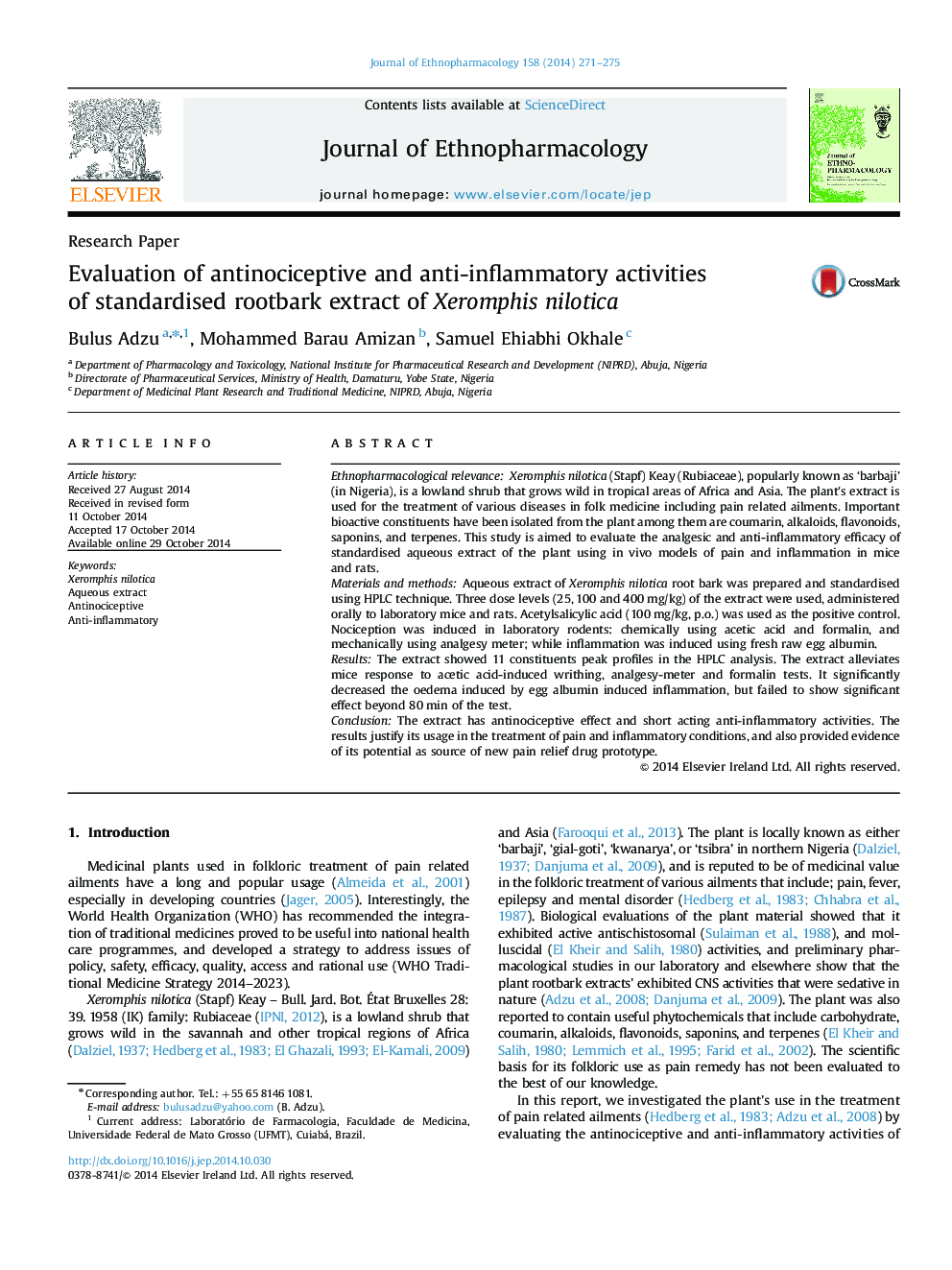| Article ID | Journal | Published Year | Pages | File Type |
|---|---|---|---|---|
| 5835957 | Journal of Ethnopharmacology | 2014 | 5 Pages |
Ethnopharmacological relevanceXeromphis nilotica (Stapf) Keay (Rubiaceae), popularly known as 'barbaji' (in Nigeria), is a lowland shrub that grows wild in tropical areas of Africa and Asia. The plant׳s extract is used for the treatment of various diseases in folk medicine including pain related ailments. Important bioactive constituents have been isolated from the plant among them are coumarin, alkaloids, flavonoids, saponins, and terpenes. This study is aimed to evaluate the analgesic and anti-inflammatory efficacy of standardised aqueous extract of the plant using in vivo models of pain and inflammation in mice and rats.Materials and methodsAqueous extract of Xeromphis nilotica root bark was prepared and standardised using HPLC technique. Three dose levels (25, 100 and 400 mg/kg) of the extract were used, administered orally to laboratory mice and rats. Acetylsalicylic acid (100 mg/kg, p.o.) was used as the positive control. Nociception was induced in laboratory rodents: chemically using acetic acid and formalin, and mechanically using analgesy meter; while inflammation was induced using fresh raw egg albumin.ResultsThe extract showed 11 constituents peak profiles in the HPLC analysis. The extract alleviates mice response to acetic acid-induced writhing, analgesy-meter and formalin tests. It significantly decreased the oedema induced by egg albumin induced inflammation, but failed to show significant effect beyond 80 min of the test.ConclusionThe extract has antinociceptive effect and short acting anti-inflammatory activities. The results justify its usage in the treatment of pain and inflammatory conditions, and also provided evidence of its potential as source of new pain relief drug prototype.
Graphical abstractDownload high-res image (214KB)Download full-size image
